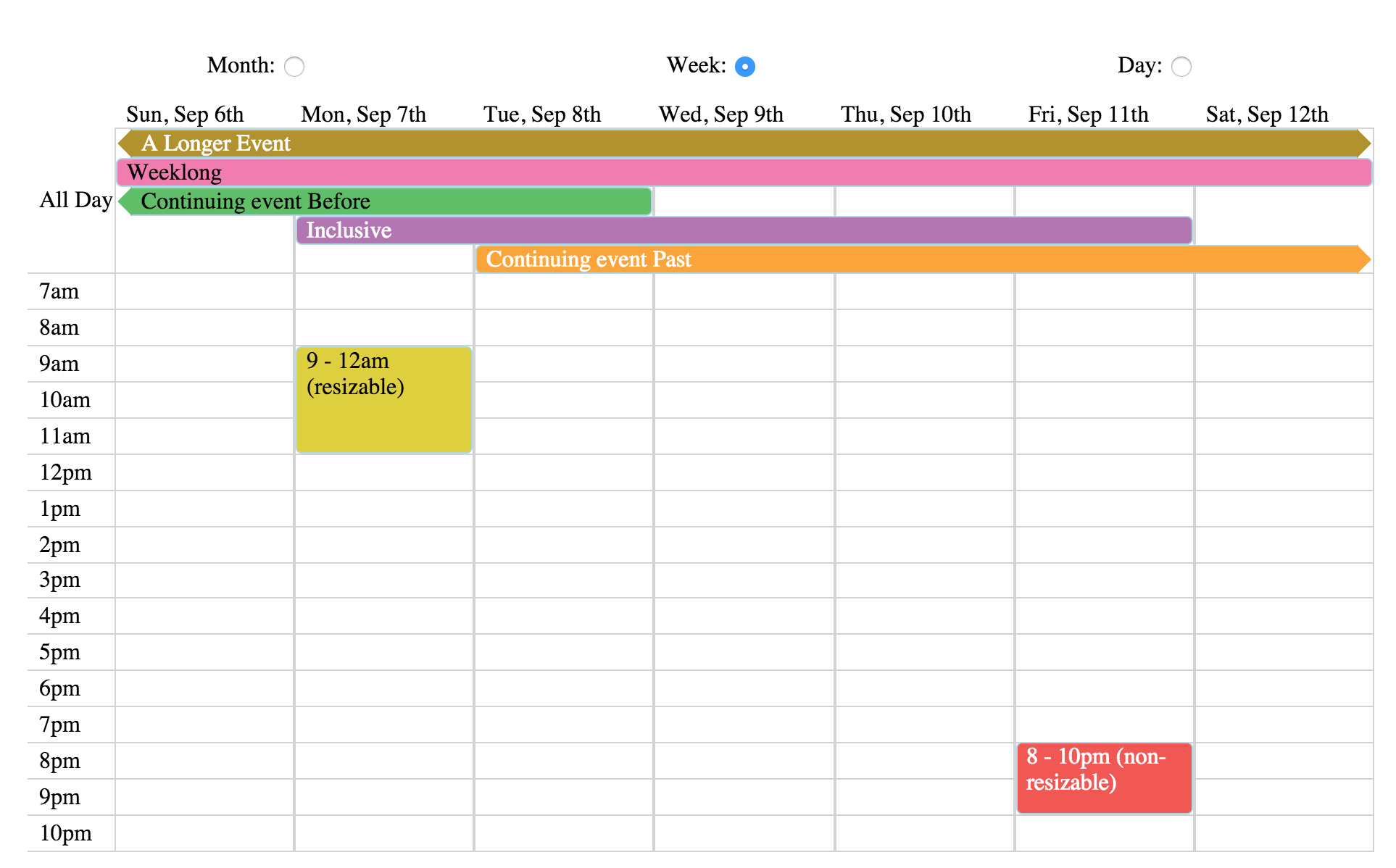- Only includes the minimal amount of features needed.
- For instance there's no paging controls provided, since they can easily be implemented outside the component. This allows Dayz to be used both as a traditional next/previous month calendar or as part of a scrolling infinite view.
- Modern styling and layout
- Uses flexbox layout (no tables)
- All heights/widths are specified as percentages so the component will size to fit whatever container it's rendered into.
- Styles are written in scss with variables that can be modified for customized builds.
- Care is taken to retain elements when switching view types, this allows minimal DOM reflow and allows nice animation effects where events warp into position.
An interactive demo can be viewed at: http://nathanstitt.github.io/dayz/
npm install dayz --save
-- or --
yarn add dayzimport React from 'react';
import Dayz from 'dayz';
// could also import the sass if you have a loader at dayz/dayz.scss
import 'dayz/dist/styles.css';
import moment from 'moment';
// would come from a network request in a "real" app
const EVENTS = new Dayz.EventsCollection([
{ content: 'A short event',
range: moment.range( date.clone(),
date.clone().add(1, 'day') ) },
{ content: 'Two Hours ~ 8-10',
range: moment.range( date.clone().hour(8),
date.clone().hour(10) ) },
{ content: "A Longer Event",
range: moment.range( date.clone().subtract(2,'days'),
date.clone().add(8,'days') ) }
]);
class MyComponent extends React.PureComponent {
render() {
return <Dayz
display='week'
date={this.props.date}
events={EVENTS}
/>
}
}The Dayz component accepts these properties:
-
date (required): An
momentjsinstance that controls what range is displayed. The calendar will automatically calculate the month or week that contains this date and display the appropriate range. -
events (optional): An
Dayz.EventsCollectioninstance that contains events that should be displayed on the calendar. -
highlightDays: either a function or an array of days that should be highlighted. Each day can be a string date that momentjs accepts, a JS Date object, or a momentjs date. if using a function, it will be passed the day and should return either false, or a string to use for the className.
-
dayEventHandlers event handlers to attach on the Day element, such as onClick, onMouseOver, etc.
- if onClick or onDoubleClick is given to dayEventHandlers, the call back will be passed two variables, the event and a
momentjsdate. Hours/Minutes are added to the date to reflect how far down the Y axis was clicked.
- if onClick or onDoubleClick is given to dayEventHandlers, the call back will be passed two variables, the event and a
-
display (optional, defaults to 'month'): One of month, week, or day.
-
onEventClick, onEventDoubleClick (optional): A function that will be called whenever an event is clicked, it's passed two variables, the event and the layout information for the event. The layout has an
eventsubkey that includes the event itself. -
displayHours (optional): defaults to 7am to 7pm or the earliest/latest event's hour.
-
timeFormat (optional): defaults to
haconfigures y labels time format
npm startstarts up a local development web-server which rebuilds files when changednpm testruns unit testsnpm run buildcompiles files in preparation for publishing
